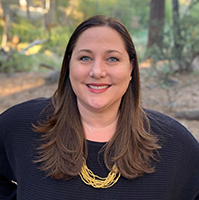
Leaders Serve: The Value of Pro Bono Service

Allums Law, APC
Last month’s SDCBA leadership panel explored the value of pro bono service and how attorneys can identify those needs and step forward with solutions.
Program panelists included Anne Bautista, Legal Support & Strategy Director at Casa Cornelia Law Center; Charles Bell, Jr., Esq., City Attorney at the National City Attorney’s Office; Carrie Holmes, Pro bono Manager & Supervising Attorney at the San Diego Volunteer Lawyer Program, Inc.; Christine I.P. Schumacher, Senior Attorney & Pro bono Program Manager, at the Legal Aid Society of San Diego, Inc.; and Juan Zuniga, Esq., Partner at Rimon Law.
There is a staggering need for pro bono legal services in San Diego County. Over 10,000 people seek legal aid support annually, and this figure doesn’t account for those who face barriers to seek assistance. More than 92% of the civil legal needs of low-income Americans are unmet, according to the April 2022 Justice Gap Report produced by Legal Services Corporation. Holmes noted that high housing costs have only increased the need for legal assistance, as disposable incomes are shrinking.
Legal assistance programs such as the Legal Aid Society and San Diego Volunteer Lawyer Program (SDVLP) rely not only on their hard-working staff attorneys but also on the efforts of outside attorneys. It is therefore imperative that new lawyers do what they can to contribute pro bono hours.
One misconception is that you can only volunteer in your specific background area. Zuniga reminded attorneys that not all pro bono needs are for litigation or domestic violence issues. Transactional services such as those provided by the SDVLP’s Microbusiness and Nonprofit Support Program can make a huge difference for someone’s livelihood.
Don’t be afraid to volunteer. Legal Aid staff can train attorneys to provide services in a new practice area. Diverse client experiences sharpen your communication and problem-solving skills as a counselor and advisor. By doing something new, you are expanding your own proficiency and professional growth.
Casa Cornelia Law Center, where Bautista works, serves victims of civil and human rights violations. She noted these are highly specialized areas of immigration law, but volunteers are given mentorship and training. This rewarding work provides invaluable experience in building empathy for others.
For government attorneys and others whose employment prohibits them from providing direct pro bono representation, there is an opportunity to provide connections rather than legal advice. Answering questions or connecting someone with a lawyer in your personal or professional network can provide solutions. There are also roles for experienced attorneys to mentor new lawyers to provide services.
Pro bono work can help one develop personally and professionally. Law is a life of service. Delving outside of your practice makes you a better and more compassionate advocate. For the speakers, volunteer work has provided some of the most meaningful cases of their careers.
Law students and new lawyers are very capable and needed in the public interest field. The NLD commends new lawyers such as Abril Perez of Casa Cornelia Law Center, Gilberto Vera of Legal Aid Society, and Ashley Fasano of USD’s Name and Gender-Marker Change Clinic for their commitment to public interest service.
The panelists agreed that the theme of the panel, “leaders serve,” truly encapsulates what lawyers do. Lawyers’ work is focused on service, to our clients and to others. We have a particular base of knowledge and abilities that others don’t possess. We are uniquely qualified to solve legal problems. Volunteering these skills equips others to find solutions to life-altering issues. Someone who sees a need and takes initiative to help solve the need is a leader.
L. Marcel Stewart, who moderated the panel, believes that leaders act because they are trying to do the right thing and solve a problem. They are not looking for recognition but are instead trying to make a contribution. Bell added that as a leader in service to others, your actions, behavior and priorities are reflected in the action of your team members. Giving your time and talents sets an example and encourages your team to volunteer their expertise in diverse endeavors, which sparks creativity in problem solving. This is a win-win.